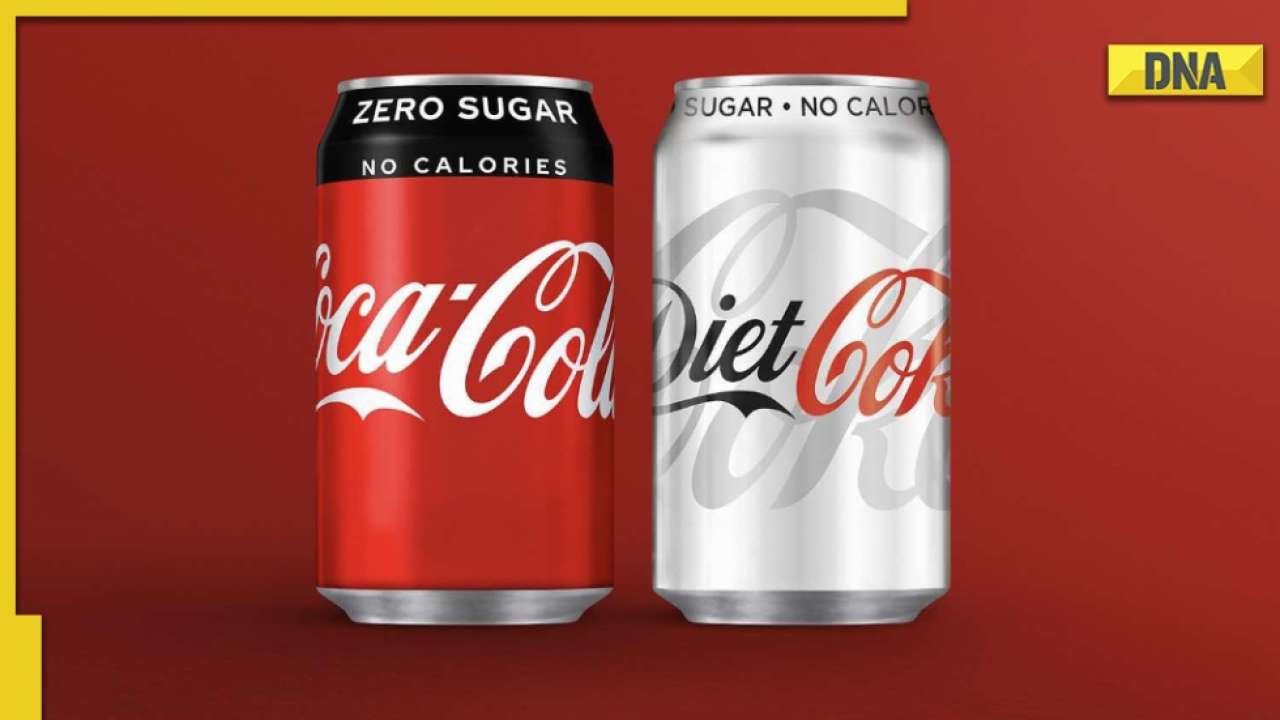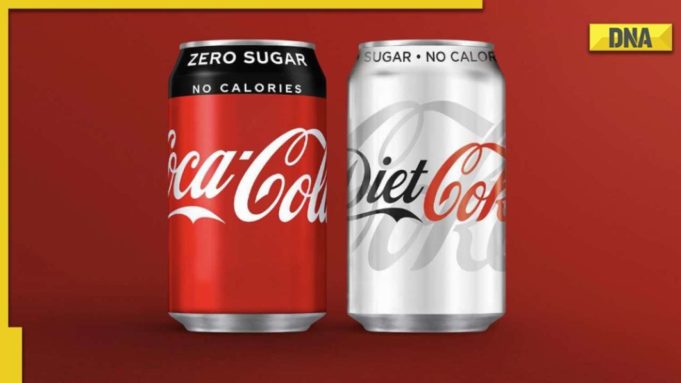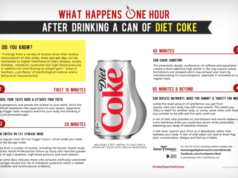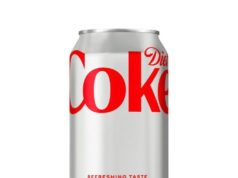Difference between diet coke and coke zero – Diet Coke vs. Coke Zero: What’s the Difference? This age-old debate has sparked countless arguments, fueled countless cravings, and left many a soda enthusiast scratching their head. Is there really a difference between these two sugar-free stalwarts, or are they just different labels on the same bubbly, caffeinated concoction?
Hold onto your straws, because we’re about to dive into the fizzy depths of this beverage battle.
The truth is, there’s more to the story than meets the eye. While both Diet Coke and Coke Zero boast a lack of sugar, their paths to sugar-free glory diverge. The key lies in their sweeteners. Diet Coke relies on the classic aspartame, while Coke Zero opts for the newer sucralose.
These seemingly minor differences can have a surprisingly significant impact on the taste, aroma, and even the nutritional profile of these beloved beverages. So, let’s break down the ingredients, dissect the taste, and ultimately, decide which sugar-free champion reigns supreme.
Diet Coke vs. Coke Zero: What’s the Difference?
You’ve probably heard of Diet Coke and Coke Zero, but have you ever stopped to wonder if they’re actually the same thing? Many people assume they are, but hold on to your hats because there’s more to this story than meets the eye.
This article will dive into the details and clarify the differences between these two popular sugar-free cola options.
The Ingredients: A Tale of Two Colas
The key to understanding the difference between Diet Coke and Coke Zero lies in their ingredients. Both drinks are sugar-free, but they achieve this in different ways. Diet Coke relies on aspartame as its primary sweetener. Aspartame is a low-calorie artificial sweetener that’s been around for a while.
Coke Zero, on the other hand, uses a blend of sweeteners: aspartame, acesulfame potassium, and sucralose. This combination aims to create a taste profile that more closely resembles the original Coca-Cola.Here’s a table summarizing the key ingredients:
| Ingredient | Diet Coke | Coke Zero |
|---|---|---|
| Sugar | No | No |
| Aspartame | Yes | Yes |
| Acesulfame Potassium | No | Yes |
| Sucralose | No | Yes |
Taste and Flavor Profile
The different sweeteners used in Diet Coke and Coke Zero result in distinct flavor profiles. Diet Coke, with its reliance on aspartame, has a slightly sweeter, almost artificial taste. Some people describe it as having a “metallic” aftertaste. Coke Zero, with its blend of sweeteners, aims for a more “classic Coke” flavor.
It’s designed to be less sweet and more full-bodied, mimicking the taste of regular Coke.
“The combination of sweeteners in Coke Zero is intended to create a more robust flavor profile that is closer to the taste of regular Coke.”
Ultimately, taste is subjective, and individual preferences vary. Some people might find Diet Coke’s sweetness more appealing, while others might prefer the more complex flavor profile of Coke Zero.
Nutritional Information
Both Diet Coke and Coke Zero are calorie-free and contain no sugar. They are also both low in sodium. However, they do contain artificial sweeteners, which some people may choose to avoid.Here’s a table comparing the nutritional information per 12-ounce serving:
| Nutrient | Diet Coke | Coke Zero |
|---|---|---|
| Calories | 0 | 0 |
| Total Fat | 0g | 0g |
| Sodium | 35mg | 35mg |
| Carbohydrates | 0g | 0g |
| Sugar | 0g | 0g |
| Protein | 0g | 0g |
The Verdict: Which One is Right for You?
The choice between Diet Coke and Coke Zero ultimately comes down to personal preference. If you’re looking for a sweet, low-calorie beverage, Diet Coke might be your go-to. But if you crave a more complex, “classic Coke” flavor, Coke Zero could be the better option.
Sweeteners
Diet Coke and Coke Zero are both sugar-free, but they achieve this goal using different sweeteners. Diet Coke relies on aspartame, while Coke Zero uses sucralose. Both are artificial sweeteners that are much sweeter than sugar, allowing for a similar taste profile without the calories.
However, they differ in their chemical makeup, taste, and potential health implications.
Aspartame in Diet Coke
Aspartame is a dipeptide, meaning it’s composed of two amino acids: aspartic acid and phenylalanine. It’s about 180 times sweeter than sugar, making it a very effective sweetener in small doses.
Taste Profile
Aspartame has a clean, sweet taste that closely resembles sugar. However, some people experience a bitter aftertaste, particularly when used in higher concentrations.
Potential Health Implications
Aspartame has been the subject of much controversy and debate regarding its safety.
- Some studies have linked aspartame to headaches, dizziness, and other neurological symptoms, but these findings are not conclusive and require further investigation.
- There is also concern about its potential to cause cancer, although the World Health Organization (WHO) and the US Food and Drug Administration (FDA) have deemed it safe for consumption within acceptable daily limits.
- Individuals with phenylketonuria (PKU), a rare genetic disorder that prevents the breakdown of phenylalanine, should avoid aspartame.
Sucralose in Coke Zero
Sucralose is a chlorinated sugar derivative, meaning it’s a modified version of sugar with chlorine atoms added to its structure. It’s about 600 times sweeter than sugar, making it even more potent than aspartame.
Taste Profile
Sucralose is generally perceived as having a cleaner and sweeter taste than aspartame, with less of a bitter aftertaste. Some people describe it as having a slightly caramel-like flavor.
Potential Health Implications
Sucralose is generally considered safe for consumption, with the FDA and WHO approving its use. However, there are some concerns about its potential health effects:
- Some studies suggest that sucralose may disrupt gut bacteria and alter blood sugar levels, but these findings are still under investigation.
- There is also concern about the potential for sucralose to accumulate in the body, although more research is needed to confirm this.
Nutritional Content
When it comes to nutrition, both Diet Coke and Coke Zero are designed to be low-calorie alternatives to regular Coca-Cola. However, there are some subtle differences in their nutritional profiles that might be important to consider.
Nutritional Comparison
The table below provides a side-by-side comparison of the nutritional content of Diet Coke and Coke Zero per serving (12 fl oz):
| Nutrient | Diet Coke | Coke Zero |
|---|---|---|
| Calories | 0 | 0 |
| Carbohydrates | 0g | 0g |
| Sugar | 0g | 0g |
| Sodium | 35mg | 45mg |
| Other Key Nutrients | None | None |
As you can see, both beverages are essentially calorie-free and sugar-free. However, Coke Zero contains slightly more sodium than Diet Coke.
Ingredients
Both Diet Coke and Coke Zero are crafted to satisfy your cola cravings without the sugar rush. But how do they achieve that sugar-free magic? Let’s delve into their ingredient lists to find out.
Diet Coke Ingredients
Here’s a peek at the ingredients that make up Diet Coke:
- Carbonated Water
- Caramel Color
- Phosphoric Acid
- Caffeine
- Natural Flavors
- Aspartame
- Potassium Benzoate (preserves freshness)
- Citric Acid
Coke Zero Ingredients
Coke Zero has a slightly different ingredient lineup:
- Carbonated Water
- Caramel Color
- Phosphoric Acid
- Caffeine
- Natural Flavors
- Aspartame
- Acesulfame Potassium
- Potassium Benzoate (preserves freshness)
- Citric Acid
Shared and Unique Ingredients
Both Diet Coke and Coke Zero share a core set of ingredients, including carbonated water, caramel color, phosphoric acid, caffeine, natural flavors, potassium benzoate, and citric acid. The key difference lies in their sweeteners. Diet Coke relies solely on aspartame, while Coke Zero employs a blend of aspartame and acesulfame potassium.
This dual-sweetener approach in Coke Zero aims to create a more complex flavor profile, mimicking the sweetness of regular Coke more closely.
Taste and Aroma
The difference in sweeteners between Diet Coke and Coke Zero results in distinct taste and aroma profiles. Diet Coke, sweetened with aspartame, tends to have a slightly sweeter and more artificial taste, while Coke Zero, sweetened with a blend of aspartame and acesulfame potassium, offers a more balanced sweetness and a closer resemblance to the taste of regular Coke.
The Role of Sweeteners in Taste
The choice of sweeteners plays a crucial role in shaping the overall taste experience. Aspartame, the sweetener used in Diet Coke, is known for its intense sweetness, which can sometimes be perceived as artificial. In contrast, Coke Zero’s blend of aspartame and acesulfame potassium offers a more balanced sweetness profile, aiming to replicate the taste of regular Coke.
Diet Coke and Coke Zero: two names that sound like they’re from a sci-fi movie, but really just represent different ways to avoid the sugar rush. But, if you want to get technical, Keywords can tell you the real difference between these two, like “aspartame” vs “sucralose,” and that’s a whole different story.
Anyway, the important thing is that you can enjoy the fizzy, cola-y goodness without the guilt (or the extra calories).
Other Ingredients Impacting Taste and Aroma, Difference between diet coke and coke zero
While sweeteners are the primary drivers of taste, other ingredients also contribute to the overall flavor profile.
- Citric Acid:Provides a tangy and refreshing element, balancing the sweetness.
- Caramel Color:Adds a slightly burnt and caramelized flavor, contributing to the characteristic Coke taste.
- Natural Flavors:These ingredients enhance the overall aroma and taste, creating a more complex flavor profile.
Marketing and Branding
The marketing strategies employed for Diet Coke and Coke Zero are quite different, reflecting their target audiences and brand positioning. While both beverages cater to those seeking a sugar-free option, their marketing efforts emphasize distinct aspects, aiming to appeal to different consumer groups.
Target Audience
The target audience for Diet Coke has historically been a broader demographic, including health-conscious individuals, women, and those seeking a refreshing and familiar taste. Diet Coke’s marketing often focuses on themes of social gatherings, fun, and enjoyment.
- For instance, the iconic “Diet Coke and a Smile” campaign, featuring celebrities and everyday individuals, emphasized the social aspect of the beverage.
- The “Diet Coke Break” campaign promoted the beverage as a refreshing escape from daily stress.
Coke Zero, on the other hand, has been positioned as a “masculine” alternative to regular Coke, appealing to men who want a sugar-free option without sacrificing the full-bodied flavor of the original.
- Its marketing often features themes of adventure, sports, and action, aiming to connect with men who value a bold and active lifestyle.
- The “Coke Zero: For the Zero Compromise” campaign, showcasing extreme sports and daring feats, exemplifies this approach.
Branding Elements
The branding elements of Diet Coke and Coke Zero also reflect their distinct target audiences and positioning.
- Diet Coke’s branding features a sleek, silver can with a classic red Coke logo, evoking a sense of sophistication and tradition. The red color is associated with energy and excitement, aligning with the brand’s focus on social gatherings and enjoyment.
So, you’re wondering about the difference between Diet Coke and Coke Zero? It’s like the difference between a squirrel wearing a tiny tuxedo and a squirrel wearing a tiny, black turtleneck – both stylish, but one’s got a little more flair.
But if you’re really trying to shed some pounds, maybe ditch the soda altogether and check out how to lose weight. You’ll be surprised how much those extra calories add up, and then you’ll be wondering why you ever chose Diet Coke over a refreshing glass of water.
Just remember, Coke Zero is still zero calories, but it’s not the same as Diet Coke. It’s like comparing a fluffy cloud to a fluffy pancake – both fluffy, but one’s more breakfast-y.
- Coke Zero’s branding features a black can with a bold red Coke Zero logo, emphasizing a more masculine and edgy aesthetic. The black color is often associated with strength and power, reinforcing the brand’s positioning as a “zero compromise” alternative for men.
Consumer Preferences: Difference Between Diet Coke And Coke Zero

The battle between Diet Coke and Coke Zero is not just a clash of sweeteners, but also a clash of consumer preferences. The choice between these two iconic beverages boils down to individual taste, health considerations, and even personal brand associations.
Taste and Sweetness Preferences
The differences in taste and sweetness are the primary drivers behind consumer preferences. Diet Coke, with its aspartame-based sweetness, tends to have a more “artificial” sweetness profile, which some find appealing, while others find it less palatable. On the other hand, Coke Zero, with its blend of sweeteners (aspartame, acesulfame potassium, and sucralose), often delivers a sweeter taste, closer to the sweetness of regular Coke.
Diet Coke and Coke Zero are like those twins who look alike but have totally different personalities. One’s all about the sweet, artificial aftertaste, while the other’s got that bitter, “I’m trying to be healthy” vibe. But when it comes to their nutritional value, they’re both pretty much the same – zero calories and zero nutritional value.
Which makes you wonder, do they even count towards your recommended dietary allowance of “stuff that’s actually good for you?” Probably not. So, if you’re looking for a health drink, you might want to skip the Coke altogether and grab a glass of water.
Or, you know, a kale smoothie. Just saying.
This makes it a more appealing option for those who crave the classic Coke taste without the sugar.
“I find Diet Coke too artificial, it has a strange aftertaste. Coke Zero is much closer to the real thing, even though it’s sugar-free.”
John, a Coke Zero enthusiast
Health Considerations
Health considerations play a significant role in consumer choices. Diet Coke, with its lower calorie count and lack of sugar, is often preferred by those looking to manage their weight or blood sugar levels. However, concerns about the potential health effects of aspartame, the primary sweetener in Diet Coke, have led some consumers to opt for Coke Zero, which uses a blend of sweeteners.
“I’m trying to cut down on sugar, so I choose Diet Coke over Coke Zero. It’s a healthier option for me.”
Sarah, a Diet Coke loyalist
Brand Image and Perception
The perception and brand image of each beverage also influence consumer choices. Diet Coke, with its long history and association with “diet” and “lightness,” appeals to consumers who are conscious of their weight and image. Coke Zero, on the other hand, targets a broader audience with its emphasis on “zero sugar” and “real Coke taste,” appealing to those who want to enjoy a classic Coke experience without the sugar.
“I associate Diet Coke with a healthier lifestyle, while Coke Zero feels more like a guilt-free indulgence.”
Michael, a Diet Coke drinker
Conclusive Thoughts
So, there you have it. Diet Coke and Coke Zero, two sugar-free titans of the beverage world, may share a similar goal but achieve it in distinctly different ways. From their sweeteners to their marketing strategies, these drinks offer a glimpse into the complexities of the modern beverage industry.
Ultimately, the choice between Diet Coke and Coke Zero comes down to personal preference. Whether you’re a fan of aspartame’s classic sweetness or sucralose’s more subtle touch, the world of sugar-free soda offers a diverse and delicious landscape to explore.
FAQ Explained
Is Diet Coke or Coke Zero healthier?
Both are sugar-free and have similar calorie counts, but the health implications of aspartame and sucralose are still debated. Ultimately, the “healthier” option depends on your individual dietary preferences and concerns.
Can I mix Diet Coke and Coke Zero?
Absolutely! Some people enjoy the unique flavor profile that results from combining the two. Experiment and see what you like best.
Which one is more popular?
Diet Coke generally enjoys higher sales and brand recognition, but Coke Zero has been gaining popularity in recent years.
























